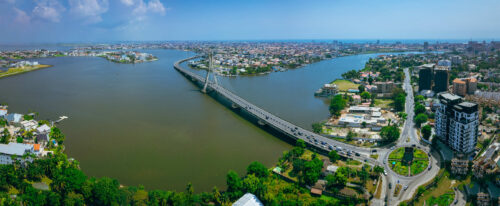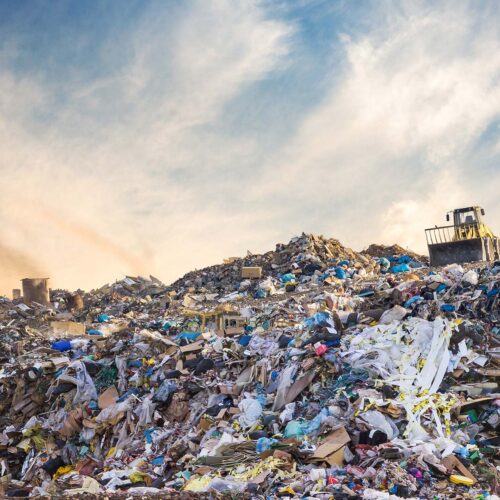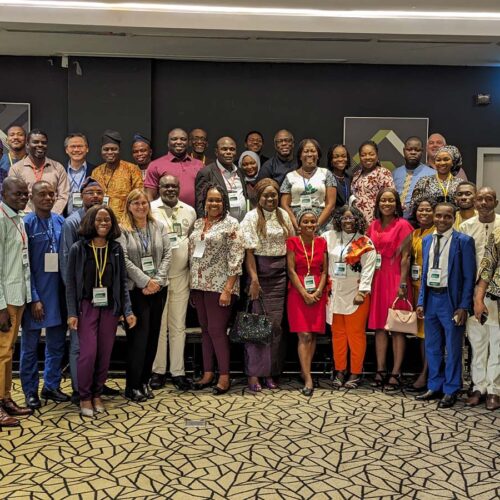For years, carbon dioxide has dominated the conversation on climate change, but methane — a super-polluting gas that warms the planet more than 80 times as quickly as CO2 in the near term — also deserves critical attention. Fortunately, with mounting global momentum — from the Global Methane Pledge to the launch of new plume-detecting satellites — there is increasing recognition that we can’t meet climate goals without addressing methane emissions.
With this heightened interest, many countries have included methane in their Nationally Determined Contributions (NDCs). This includes Nigeria, which has committed to reducing waste methane by 10 percent by 2030.
Lagos, Nigeria’s largest city, with a population of over 20 million, holds enormous potential to improve waste management and slash methane. As a participating jurisdiction of the Lowering Organic Waste Methane Initiative, Lagos has committed to cutting methane emissions from waste disposal by 30 percent by 2030 compared to 2020 levels — an annual reduction of 34,400 tons of methane, according to the WasteMAP Decision Support Tool. This is equivalent to taking 642,000 gasoline-powered cars off the road for a year.
To realize this potential, Lagos aims to decommission five dumpsites and increase its waste treatment capacity to 2,000 tons per day by 2030, which would also improve local air quality, enhance public health, and create new jobs.

Lagos’s waste methane mitigation potential, estimated using the WasteMAP Decision Support Tool in May 2025.
Over the last two years, RMI has supported Lagos’s efforts in achieving these emissions reduction and waste management goals, from identifying regulatory barriers to closing dumpsites to assessing the economic viability of organic waste treatment facilities and facilitating peer-to-peer learning. Here is what we have learned in the process.
Insight 1: Understanding the local context is crucial to providing tailored assistance that addresses local needs.
While mature, proven technologies and best practices exist to reduce methane and improve waste management, successful implementation depends on adapting them to the local context. One of the most effective ways to understand this context is through on-the-ground visits.
RMI conducted multiple visits to waste management facilities in Lagos as well as bulk waste generators such as food and vegetable markets. At Olusosun dumpsite, waste pickers, many living at or near the dumpsite, were sorting recyclables from mixed waste. They play a vital role in local recycling, and as Lagos begins closing its dumpsites, intentionally including them in the formal waste management system is essential for the transition. At Ketu market, organic waste — primarily fruits and vegetables — that could be treated through composting or biogas facilities is sent to the dumpsite, revealing a missed opportunity. We also visited Oko Oba abattoir (or slaughterhouse), where a small-scale, privately owned biogas facility co-digesting animal and food waste was facing challenges in scaling operation due to the high cost of sourcing equipment internationally.
These site visits are critical to understanding local context and stakeholders, identifying opportunities for technical assistance, and tailoring recommendations to address local needs. For the biogas facility at the abattoir, local equipment fabrication would significantly lower the upfront investment needed, an insight which may not have been obvious without on-the-ground engagement.

Fresh fruits at Ketu Market in Lagos.
Insight 2: Clear and enforceable policies and regulations are essential in guiding paradigm shift and project implementation.
In October 2024, the Lagos Waste Management Authority (LAWMA) announced plans to close some of its dumpsites, including Olusosun and Solous. Transitioning from dumpsites to sanitary landfills is a complex process and requires a systematic transformation in waste management practices to be effective. It often involves improvements in waste collection and treatment, landfill engineering and design, and operational changes to reduce contamination, control leachate, and manage landfill gas. Comprehensive policy frameworks are essential for the planning, stakeholder coordination, and capacity-building required to guide an efficient transition that benefits all stakeholders.
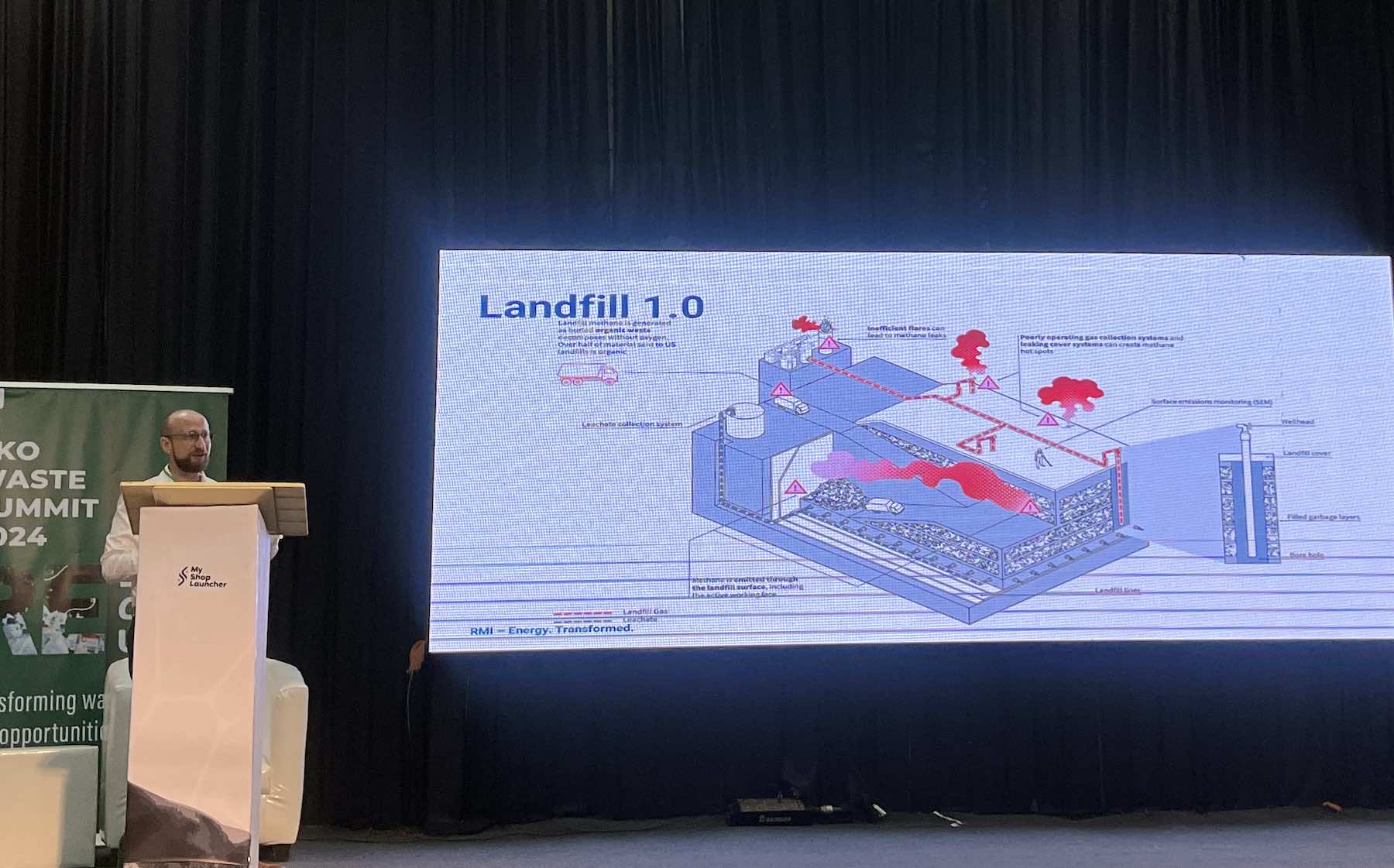
RMI waste sector methane expert Tom Frankiewicz shares insights on landfill design and operations at the Eko Waste Summit in Nigeria.
To support Lagos’s plans, RMI examined the policy and regulatory landscape for waste disposal to identify opportunities and provide recommendations for creating robust policies, including requiring informal worker transition plans, outlining guidelines and technical specifications for landfill design, and establishing procedures to monitor and control groundwater contamination and air pollution. These recommendations aim to guide policymakers in shifting from existing waste disposal practices to more advanced ones anchored in the waste management hierarchy, where waste treatment and resource recovery are prioritized over open dumping and landfilling.
Insight 3: Sustained long-term commitment and stakeholder coordination are essential in effecting robust regulatory frameworks.
While stronger regulatory frameworks are essential, reaping benefits often requires a sustained effort engaging with multiple stakeholder groups beyond infrastructure build-out. In these efforts, whether facilitating proper landfill operation and oversight or strengthening resource recovery across the value chain, the role of effective coordination among stakeholders cannot be understated.
Impacts of dumpsite-to-landfill transition on different stakeholder groups
Note: These categories are not mutually exclusive; for example, individuals or groups listed above may be both directly impacted and concerned. Source: RMI analysis based on ISWA, DW News, WEIGO and University of Colorado Environmental Center
Poor stakeholder coordination can undermine effective policy implementation by preventing timely planning and efficient oversight, and impact various stakeholder groups such as residents, local businesses, landowners, and informal workers. To mitigate this, it is crucial to define the roles and responsibilities of key stakeholders within the value chain, including national and sub-national government agencies, municipality or waste management authorities, regulators, enforcement agencies, private sector participants (PSPs), and NGOs. RMI, in collaboration with the LAWMA, defined the roles of key government agencies in effecting the policy recommendations in its regulatory barrier analysis.
Insight 4: Economically viable organic waste treatment projects exist, but they are rare, and incentives are necessary to help them scale.
Closing dumpsites must be done in tandem with reducing waste generation and diverting the waste from disposal sites to treatment solutions like composting facilities and biogas plants. These environmentally friendly alternatives are crucial to meeting Lagos’s climate targets, and they provide additional revenue opportunities to boost waste management cost recovery through the sale of compost, biogas, or digestate.

RMI team visits the biogas facility at Oko Oba Abattoir.
RMI’s technoeconomic assessment of the biogas facility at the Oko Oba abattoir revealed that while waste treatment projects are uncommon in Lagos, they can be economically viable under the right conditions. Key enabling factors include readily available feedstock at little to no cost, low operation and maintenance costs, and negligible permitting costs. However, the high upfront investment required — largely driven by equipment costs and import duties — poses a significant barrier to new investors. This capital intensity, combined with high interest rates, foreign exchange volatility, and the absence of proven larger-scale local precedents, elevates the perceived risk of such projects and makes it harder to access financing or secure favorable lending terms from private banks.
Incentives and funding support are necessary to overcome these barriers. Grants and low-interest loans can lower the upfront or expansion cost borne by investors, while production-based incentives for biogas and digestate, such as subsidies, tax credits, and feed-in tariffs, can help develop a mature end market, improving profitability to catalyze private sector participation and improve project scale.
Insight 5: Capacity building and peer learning are critical to realizing long-lasting, systematic change.
While there is strong political will to close dumpsites and expand organic waste treatment, the technical know-how to build, operate, and maintain these complex waste management facilities is often limited in emerging markets like Lagos. Policymakers also need this expertise to develop sound regulations and ensure effective oversight. Otherwise, projects often face extended downtime, increased operational costs, and a higher risk of failure. Learning from experts and through peer networks can foster shared knowledge and understanding.
RMI co-hosted a workshop with Nigeria’s National Council on Climate Change and the International Solid Waste Association in October 2023. This event convened more than 40 waste professionals from government, NGOs, and the private sector to discuss local waste management challenges and identify practical solutions. By bringing diverse stakeholders to the table, the workshop served as a critical platform for identifying and bridging knowledge gaps and fostering cross-sector collaboration on waste management and methane mitigation. Additionally, RMI presented at and hosted several breakout sessions on source segregation of organic waste, waste treatment and landfill operation at the Eko Waste Summit 2024.
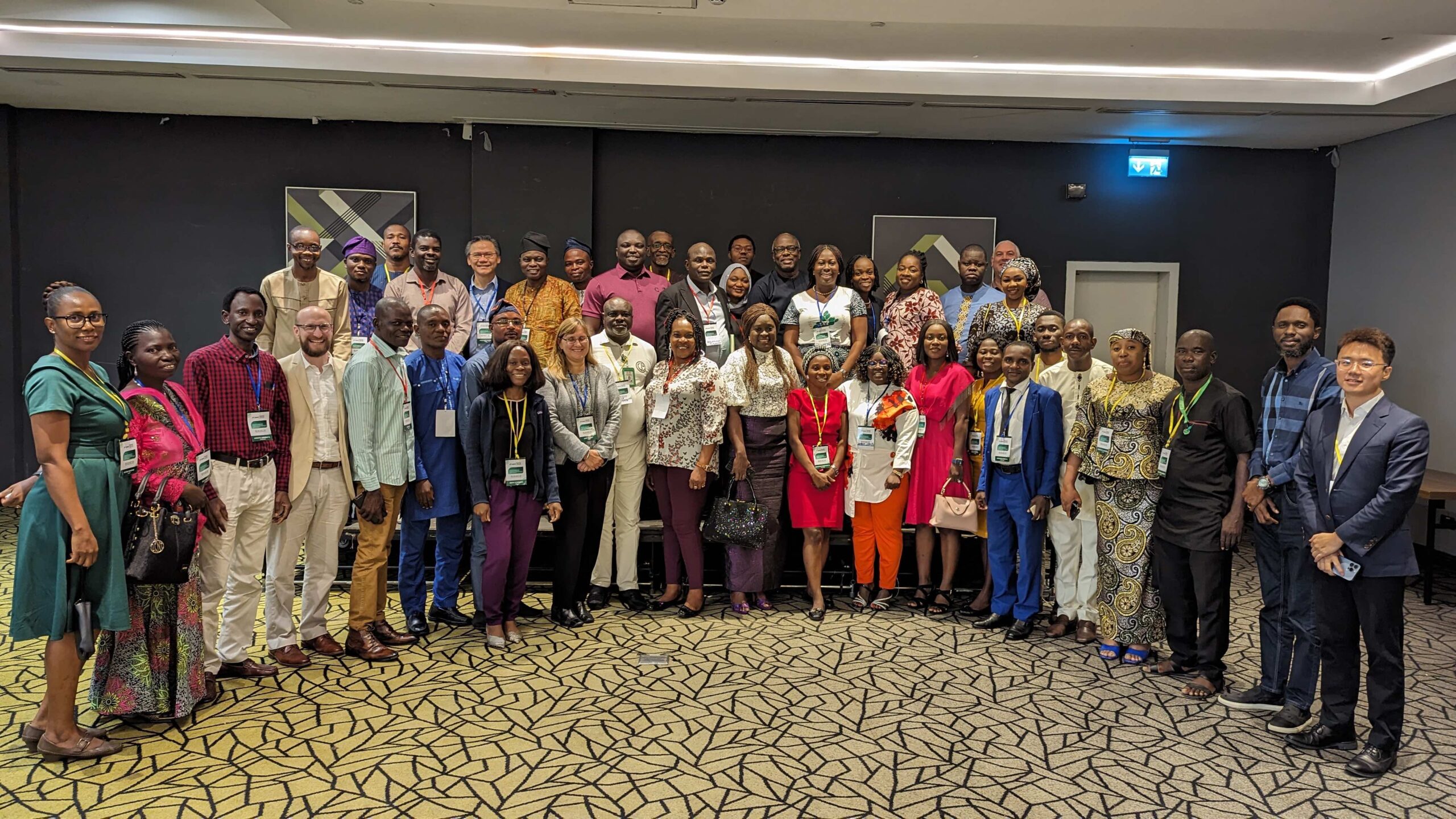
Workshop on Key Strategies to Reduce Methane Emissions from Solid Waste in Nigeria.
RMI’s work in Nigeria over the past two years underscores the need for locally-tailored strategies, stronger policy frameworks and incentives, better stakeholder coordination, and increased technical capacity. These insights can also inform waste management improvements across the Global South. For more resources to help prioritize and implement these strategies, visit the Waste Methane Assessment Platform.
RMI would like to thank the Global Methane Hub and Google.org for their funding support on this work as a part of the Waste Methane Assessment Platform initiative.
